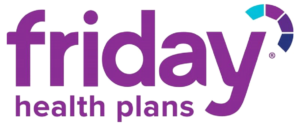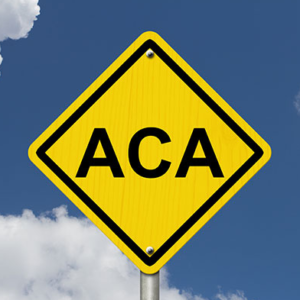- Thousands of Nevadans’ health coverage in limbo as Friday Health Plans placed in receivership (nevadacurrent.com)
Nevada Insurance Commissioner Scott Kipper filed for regulatory supervision of Friday Health Plans of Nevada, which has over 2,800 individuals in the state, after the company announced last week that it will “wind down…business operations.”...“Unfortunately, Friday has been unable to scale our financial infrastructure to match the pace of our growth and secure the additional capital required to run our business,” the company said in a statement on its website last week. “While we are deeply disappointed, we agree with the decision of our State regulators that it is necessary to wind down Friday’s business operations over time in accordance with the regulations in the states where we are operating.”...READ MORE
- Trump administration halts billions in insurance payments under Obamacare (reuters.com)
The Trump administration...halted billions of dollars in payments to health insurers under the Obamacare healthcare law, saying that a recent federal court ruling prevents the money from being disbursed...The Centers for Medicare and Medicaid Services, which administers programs under the Affordable Care Act, said the action affects $10.4 billion in risk adjustment payments...President Donald Trump’s administration has used its regulatory powers to undermine Obamacare after the Republican-controlled Congress last year failed to repeal and replace the law. About 20 million Americans have received health insurance coverage through the program...The payments are intended to help stabilize health insurance markets by compensating insurers that had sicker, more expensive enrollees in 2017. The government collects the money from health insurers with relatively healthy enrollees, who cost less to insure...
- Why the Biosimilar Drug Revolution Hasn’t Arrived (bloomberg.com)
In a word: patents...The Biologics Price Competition and Innovation Act (2010) was...part of the Affordable Care Act. Its essential goal was to infuse competition and lower the prices of drugs that were made from living cells -- so-called biologics...Until the 2010 law, biologics had no fear of competition -- there was no legal way to introduce generic versions into the market -- so they were able to maintain their monopoly price even after their patents expired. The BPCIA was intended to establish mechanisms within the Food and Drug Administration, the Patent and Trademark Office, and the courts that would allow the introduction of "biosimilars." These drugs weren't exact replicas of biologics, but were similar enough, and safe enough, to be used instead of the brand-name drugs...Here we are seven years later. Guess how many biosimilars have made it to market?..Two...companies are forced to fight through thickets of patents to get a biosimilar to market, a law that was supposed to save the U.S. billions will continue to do just the opposite: make it easy for biologic makers to maintain unwarranted monopolies...
- Centene to Offer Insurance in Exchanges in 3 More States Including Nevada (ktvn.com)
Centene Corp. says it will begin offering coverage under the Affordable Care Act for insurance exchanges in Missouri, Kansas and Nevada next year at a time other insurers are pulling out of such marketplaces...Centene announced the expansion Tuesday. It didn't specify whether its foray into Missouri and Kansas will fill a 32-county void that will result from Blue Cross and Blue Shield of Kansas City's decision to leave that individual insurance marketplace next year...That Blue Cross decision affects about 67,000 people, and 25 Missouri counties will be left with no insurance provider under the exchanges unless another company steps in to sell coverage...Centene also plans to expand in Florida, Georgia, Indiana, Ohio, Texas and Washington...It says 90% of its exchange customers are eligible for subsidies.
- Association health plans take patchwork approach on whether to enroll new employers after federal court ruling
Chamber of commerce and trade association health plans are in legal limbo after a federal judge ruled earlier this year that the Trump administration rule allowing them violates the Affordable Care Act...Some associations in Nevada have stopped allowing new businesses into their health plans out of an abundance of caution as the case goes up on appeal, while others have chosen to press forward. The heterogeneous response is the result of the fact that the court’s decision only affects some association health plans and the state Division of Insurance, which oversees the plans, doesn’t know which ones those are...READ MORE
- Few California pharmacists prescribing birth control (reuters.com)
A California law allowing pharmacists to prescribe birth control sought to make it easier for women to obtain contraception, but few drug stores provide the service... Only 11 percent of retailers in the state offered pharmacist-prescribed contraception one year after the law went into effect, the research shows...Our findings strongly suggest that more pharmacies need to offer this service to live up to the promise of widespread, easier access to birth control...Four states - California, Oregon, Colorado and New Mexico - allow pharmacists to prescribe contraceptive pills, patches, rings and injections after training about how to assess health risks and counsel women on contraceptive choices... Most stores that offered the service charged a fee...Under the Affordable Care Act, insurance carriers must pay for family planning consultations with healthcare providers. But the law does not cover pharmacists...Oregon requires Medicaid to pay pharmacists for the service. California’s law has a similar provision, but it doesn’t take effect until 2021...
- Desperate for addiction treatment, patients are pawns in lucrative insurance fraud scheme (statnews.com)
Drug users, desperate to break addictions to heroin or pain pills, are pawns in a sprawling national network of insurance fraud...They are being sent to treatment centers hundreds of miles from home for expensive, but often shoddy, care that is paid for by premium health insurance benefits procured with fake addresses...Patient brokers are paid a fee to place insured people in treatment centers, which pocket thousands of dollars in claims for each patient. They often target certain Blue Cross Blue Shield plans, because of their generous benefits and few restrictions on seeking care from out-of-network treatment programs...The fraud is now so commonplace that brokers use a simple play on words to describe how it works: "Do you want to Blue Cross the country?"...Patients from across the United States have been taken in by these profiteers capitalizing on the surge in opioid addiction..
- Reno and Sparks Chamber of Commerce becomes latest to offer association health plan to small businesses (thenevadaindependent.com)
The Reno and Sparks Chamber of Commerce announced...will begin offering an association health plan to its small business members in partnership with Prominence Health Plan, following in the footsteps of four other chambers of commerce in Southern Nevada that unveiled similar plans with other insurance companies last month...Small businesses that are members of the chamber will be able to purchase medical coverage through Prominence and dental, vision and life insurance through Kansas City Life...The Las Vegas Metro Chamber of Commerce and the Clark County Health Plan Association, a partnership of three smaller Southern Nevada chambers, each announced plans last month to begin offering association health plans to their members in the wake of a rule released by the Department of Labor in June loosening the rules on such plans. The new rule exempts association health plans from providing the essential health benefits required under the Affordable Care Act, eliminates restrictions based on geography and allows companies in different industries in the same region to provide coverage together...
- Medical Technology Is Losing Share Of Venture Investments (forbes.com)
Medical technology continues to lose ground when it comes to all U.S. venture capital investment as value-based care takes hold of the healthcare system and the industry fights to get rid of a device tax...The share of medical technology venture deals dropped to just 4% of total deals last year compared to the industry’s 13% share 25 years ago...There were 420 medical technology venture deals in 2016 out of more than 10,000 total venture deals...medical technology companies had been paying a 2.3% medical device tax on sales under the Affordable Care Act until a two-year moratorium began in January 2016. Before the device tax was put on hiatus, the IRS collected between $1 billion and $2 billion a year in 2013, 2014 and 2015...This move away from fee-for-service medicine to value-based models means insurance companies don't always pay for the medical device a doctor wants to use. Purchasing of devices at large multi-hospital systems has shifted from doctors to “hospital purchasing committees,”.. medtech products...have digital health elements embedded into them...Inherently, digital health solutions are more solution-based...and they have the ability to measure outcomes...Whether medical technology companies can develop products that improve outcomes and measure them will be key...
- Industry paid $8.2B to docs, hospitals last year (biopharmadive.com)
Drug and device makers collectively made nearly $8.2 billion in payments to physicians and teaching hospitals in the U.S. last year, according to data made public by the Centers for Medicare and Medicaid Services last week...Payments for research made up more than half of the total, which also includes money given to doctors and hospitals for expenses like travel, gifts, speaking fees and meals. The $8.2 billion recorded last year was a notch higher than 2015's total and $320 million more than 2014's figure...Among the ranks of big pharma...Roche spent the most — a princely $586 million in payments. Novartis and Pfizer were close behind with more than $475 million each, although both made more research-related payments than Roche did...The data gives a snapshot of the enormous sums of money paid by the drug and device industries to doctors and hospitals. Most of the money goes towards research, payments for things like enrolling patients into new clinical studies or study implementation. Research payments can also include direct compensation to doctors…CMS began tracking payments in 2013 as part of changes to federal law through the Affordable Care Act, with 2016 marking the third full year of the program...










